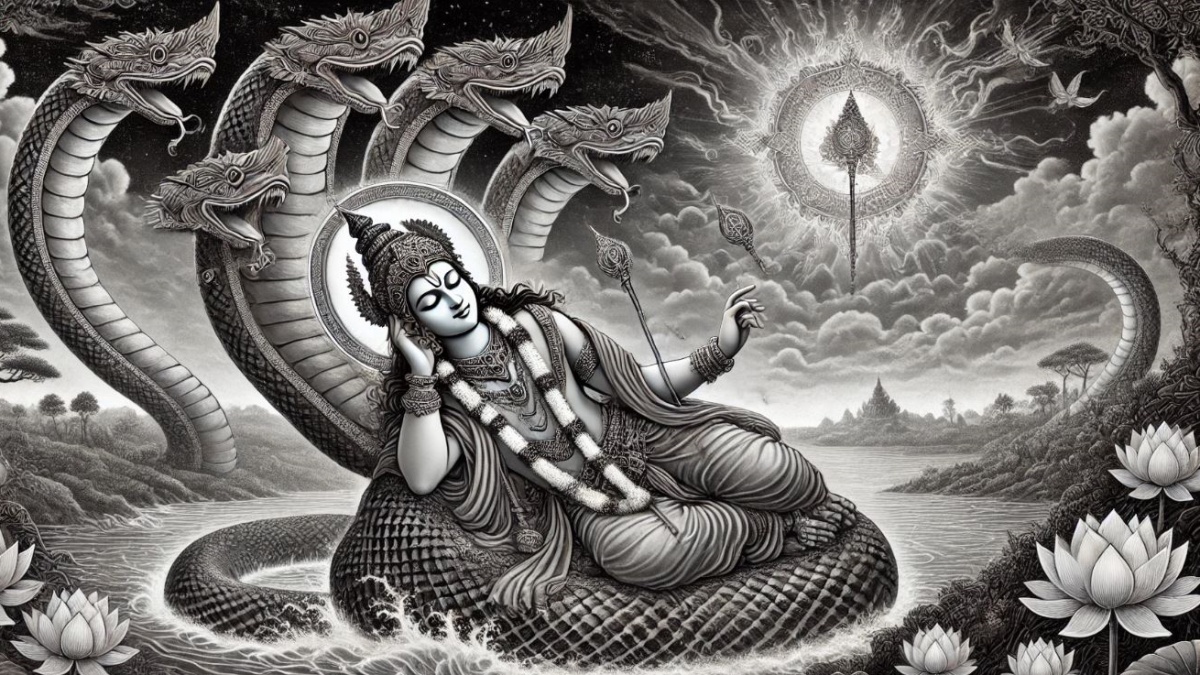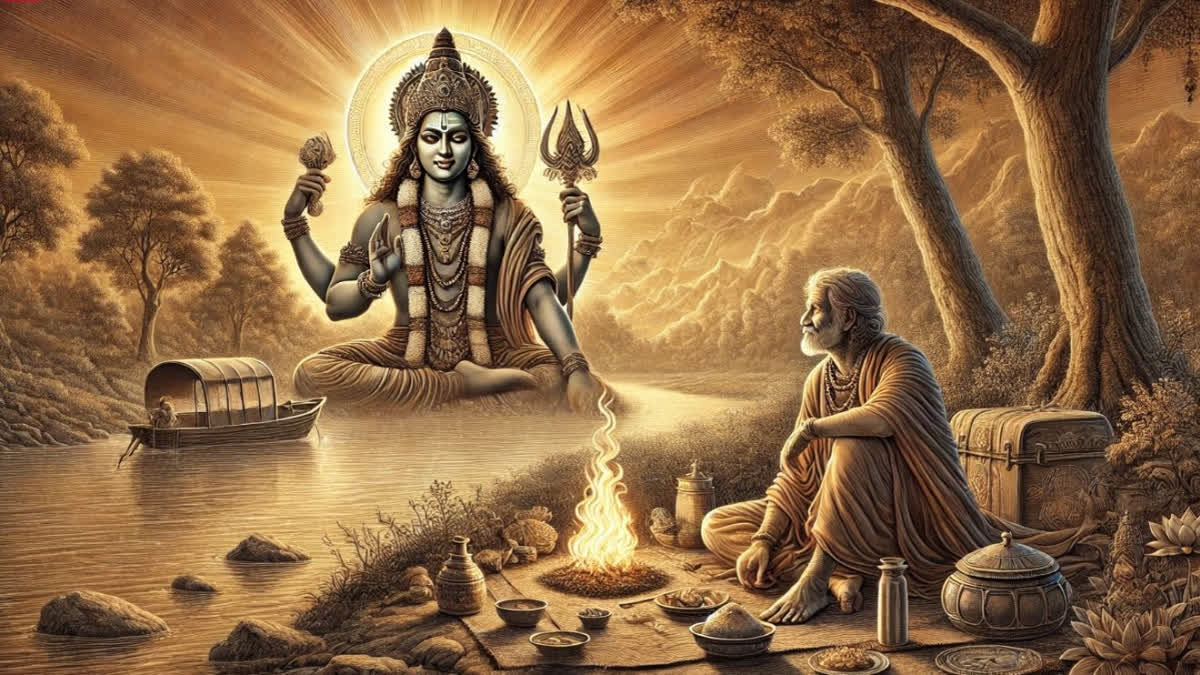Dev Uthani Ekadashi being celebrated today points to life’s inherent cycles of rest and renewal, of slumber and reawakening. The vrat katha goes that for four months, keeper of the worlds Lord Vishnu lay in a deep slumber in the heavens. Called Yoganidra, this sleep held within it a cosmic silence, a silence that suspended all things auspicious. Then, on the eleventh day of the Kartik month’s waxing moon, the world stirred. It was time for Dev Uthani Ekadashi i.e. the day of Lord Vishnu’s awakening, when gods and humans gathered to witness his rousing from the depths of Chaturmas.
Dev Uthani Ekadashi Vrat Katha
Here on earth in a kingdom ruled by a pious king, the people had become devout followers of the Ekadashi fast. Such was their devotion that on each Ekadashi, not a single grain of food was consumed. Along came a traveller who did not know the traditions of this land. He arrived in the king’s court from a long voyage, seeking shelter and sustenance. The king welcomed him, but with a single condition: “In our land, on Ekadashi, we consume no grains. If you wish to stay, you must abide by this rule.”
The traveller agreed but, when the next Ekadashi dawned, he found himself unsatisfied with fruits and milk. His stomach grumbled for more. Unswayed by the king’s warnings, he sought permission to prepare a grain-based meal for himself alone, unaware of the chain of divine events he was about to set into motion.
The Miracle of Dev Uthani Ekadashi
The traveller set off to the riverbank, where he prepared his meal in solitude. Before he ate, he called upon Lord Vishnu, inviting him to join his humble meal. “Come, O Lord,” he called, “partake in this meal with me.”
As the sun cast its rays over the river, Lord Vishnu appeared in his Chaturbhuj form. Clad in his golden finery, he sat beside the traveller and shared his simple meal. Word of this miracle soon spread, and on the next Ekadashi, the traveller asked for twice the usual amount of food. Bewildered, the king inquired why.
“The Lord himself joins me each Ekadashi. For him, I must prepare a worthy meal,” replied the foreigner.
The king was intrigued. He decided to see this with his own eyes. Concealing himself nearby, he watched as the foreign traveller prepared his food, called upon Lord Vishnu, and waited. But no golden figure appeared. In desperation, the traveller cried out, declaring he would take his own life if Vishnu did not come. Moved by his devotion, Shri Hari Vishnu finally appeared, and shared the meal with him once more and then took him to Vaikunth.
In that moment, the king understood that devotion was more than mere ritual or adherence to tradition. True devotion was sincerity without limits. Henceforth, the king and his kingdom observed the Ekadashi fast not as a mere tradition but with the understanding that it was not the food itself that mattered, but the intention behind each act of reverence.
What Is Dev Uthani Ekadashi?

Also known as Prabodhini Ekadashi, Dev Uthani Ekadashi is a significant Hindu festival observed on the eleventh day of the Shukla Paksha (waxing phase) in the Kartik month. This auspicious day marks the awakening of Lord Vishnu from his four-month cosmic slumber, symbolising the end of Chaturmas (a period during which all auspicious activities are traditionally suspended). Central to this observance is the recitation of the Dev Uthani Ekadashi Vrat Katha.
Why is the Dev Uthani Ekadashi vrat observed?
The vrat is observed to seek Lord Vishnu’s blessings and commemorate his awakening. It teaches the importance of devotion and spiritual purity.
Dev Uthani Ekadashi Rituals
Devotees observe the following rituals to honour Vishnu’s awakening:
Upvas: On this day, grains are avoided and devotees consume fruits, nuts, and dairy.
Jagran: Many stay awake through the night, singing hymns and offering prayers, symbolising their readiness to welcome the Lord’s awakening.
Tulsi Vivah: In many regions, Dev Uthani Ekadashi coincides with the ceremonial wedding of the Tulsi plant to Lord Vishnu, symbolising the union of earth and divinity.
Significance of Dev Uthani Ekadashi
Lord Vishnu’s long slumber mirrors nature’s need for pause. After all, even the gods must retreat and recharge. His awakening symbolises the reanimation of life itself.
As Vishnu awakens from his deep cosmic rest, he brings with him a renewal that reverberates through creation. Each Dev Uthani Ekadashi, with its fasts and hymns, its night-long vigils, and its fragrant Tulsi marriages, invites us to awaken our own spirits to the beauty of true devotion.



